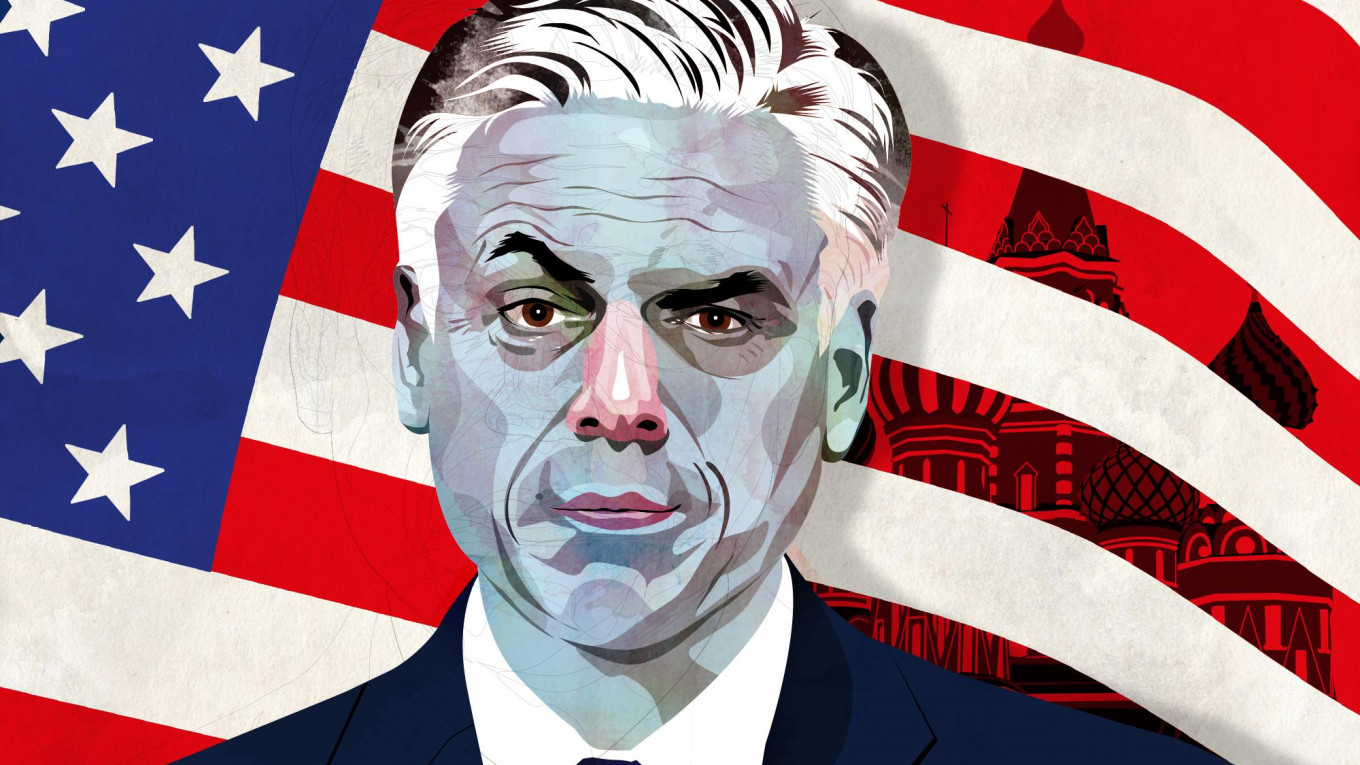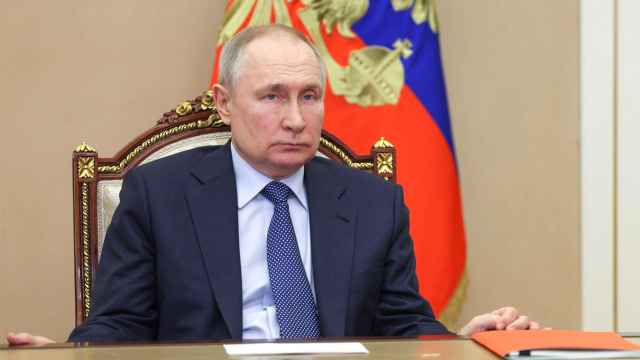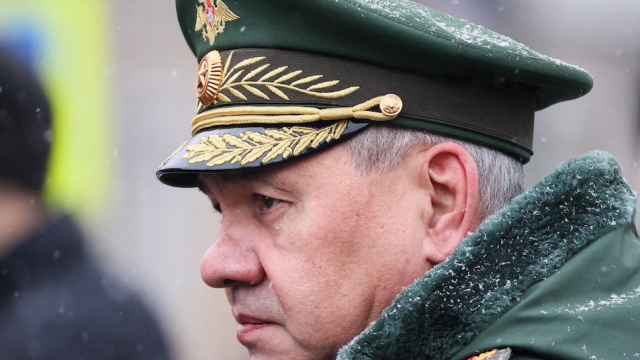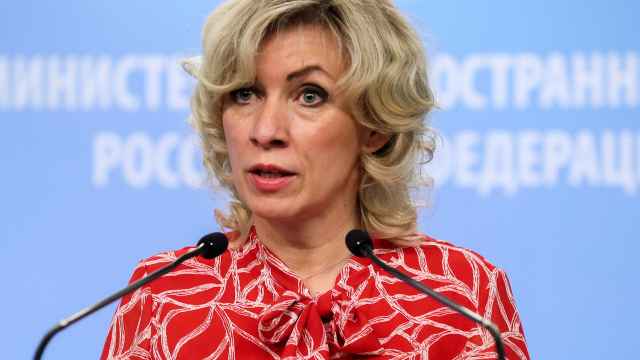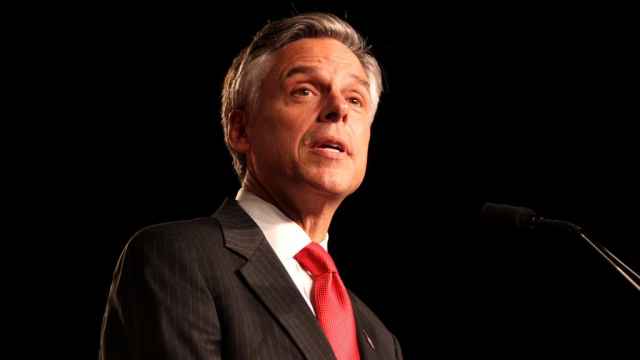Jon Huntsman, confirmed as the next U.S. Ambassador in Russia on Friday, has made little secret of what sort of diplomat he intends to be.
He will meet dissidents, end human rights abuses and help solve the conflicts in Syria and Ukraine, all while cultivating a “necessary” relationship with Moscow, he said during his confirmation hearing earlier this month.
The former Utah governor arrives to Moscow at a delicate time. A U.S. investigation into Russian electoral meddling is spiralling. Relations between the White House and the Kremlin are at a “low point,” his predecessor John Tefft told The Moscow Times the day of his departure.
Nevertheless, if his confirmation hearing is anything to go by, Huntsman intends to live up to his reputation in Moscow as a hardliner.
“There is no question — underline no question — that the Russian government interfered in the U.S. election last year,” Huntsman said. “Moscow continues to meddle in the democratic processes of our friends and allies.”
Although Huntsman’s testimony likely riled Russian officials, the Kremlin may learn to appreciate the new ambassador, says Vasily Kashin, an analyst at the Moscow-based Higher School of Economics.
When Huntsman was U.S. Ambassador in Beijing between 2009 and 2011, relations with China were precarious too. The United States was scrutinizing China’s military buildup in the Pacific and the Chinese worried that then-U.S. President Barack Obama’s “pivot to Asia” was antagonistic.
“[Huntsman] was very knowledgeable about China, very centered on economics, and very capable of dealing with Chinese authorities, without bringing too much ideology into relations,” Kashin told The Moscow Times. “I think this is a good set of skills which will be welcome in Russia.”
Huntsman did not always avoid controversy during his time in China. In 2011, he infamously walked through an anti-government protest, perhaps by accident, perhaps to remind Beijing that Washington was watching.
Having served as ambassador to Singapore under George H.W. Bush, Huntsman arrived to his post in Beijing well-versed in Asian affairs. It didn’t hurt that he spoke Mandarin Chinese too.
But the 2012 U.S. presidential candidate and billionaire, whose family company has holdings in Russia, will arrive in Moscow a novice.
Jonathan Winer, a former diplomat in the U.S. State Department, described Huntsman as an “establishment, safe and conventional choice,” who has earned respect from across both sides of the aisle in Washington.
“He has years of experience,” Winer said. “He is not going in as an apologist for anybody. He is going in straight and clean.”
“Huntsman dealt with a complex China relationship, so he can deal with a complex Russia relationship,” Winer added.
Vladimir Frolov, a Russian political analyst, is less certain.
“Where his Chinese credentials come in handy, I do not know,” Frolov told The Moscow Times. “Maybe he will have a nuanced appreciation of the tangled dynamics in the Russia-China relationship, but that’s not really part of the U.S.-Russia plate.”
Huntsman will also be “hobbled by his lack of Russian, Frolov added. “Maybe he will read Mandarin signs at GUM and TsUM, but that would not get him too far,” he quipped, referring to the iconic department stores.
Ariel Cohen, a senior fellow at the Atlantic Council and a specialist on Russia, stresses that while he believes Huntsman will be a success, it is the White House, not the ambassador, that will be dictating policy.
“This is how it always is,” Cohen told The Moscow Times, “and this is something people need to understand when they look at these important and sensitive diplomatic relationships.”
In any case, says Frolov, the bar measuring Huntsman’s success should be set low.
“The relationship is so bad right now that it is almost impossible to fail as ambassador,” Frolov said. “Whatever he does will be a step forward or upward.”
A Message from The Moscow Times:
Dear readers,
We are facing unprecedented challenges. Russia's Prosecutor General's Office has designated The Moscow Times as an "undesirable" organization, criminalizing our work and putting our staff at risk of prosecution. This follows our earlier unjust labeling as a "foreign agent."
These actions are direct attempts to silence independent journalism in Russia. The authorities claim our work "discredits the decisions of the Russian leadership." We see things differently: we strive to provide accurate, unbiased reporting on Russia.
We, the journalists of The Moscow Times, refuse to be silenced. But to continue our work, we need your help.
Your support, no matter how small, makes a world of difference. If you can, please support us monthly starting from just $2. It's quick to set up, and every contribution makes a significant impact.
By supporting The Moscow Times, you're defending open, independent journalism in the face of repression. Thank you for standing with us.
Remind me later.



